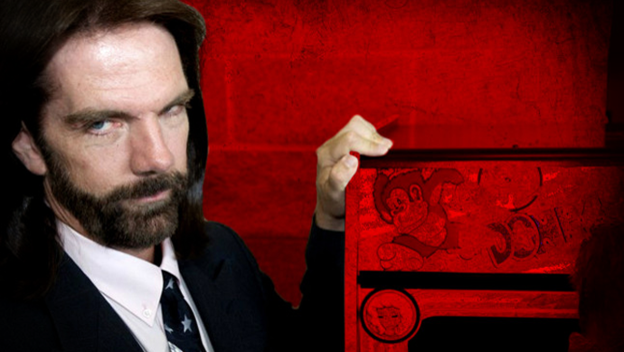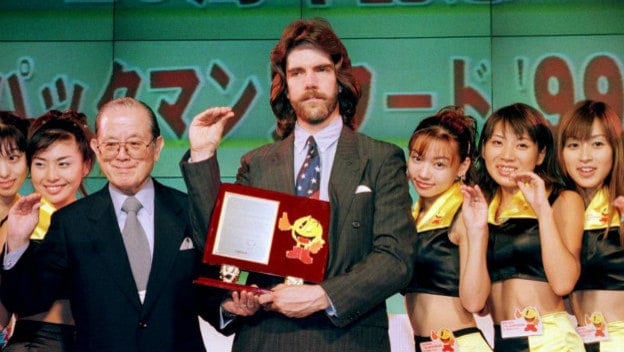For the most part, when someone hears the words “Twin Galaxies,” they’ll probably recall the surprisingly popular 2007 documentary, The King of Kong . The movie’s narrative was built around the journey of Steve Wiebe, an everyman dad type, as he fought tooth and nail to become the world record-holder for one of the most important arcade games in history: Donkey Kong . Wiebe’s efforts would come to clash with Billy Mitchell, the record holder at the time who was not only skilled, but benefitted from being a name in the video game world record scene. The climax of the movie saw Wiebe finally nail the world record despite nobody believing he could, but ultimately being undercut when Mitchell sent in a VHS tape locking himself in as the first person to reach one million points. Neither man is the current record holder today, but the entire concept of video game world records gained much legitimacy and visibility from the documentary. What made things truly messy however was Twin Galaxies, which as an organization had a hand in both the King of Kong drama, as well as the ultimate downfall of Billy Mitchell.
Twin Galaxies was started by Walter Day in the eighties as first a one-man record-keeping attempt, followed by its own arcade, and a growing path of legitimacy and partnerships that led to the brand being the go-to source of scores. Boosting this growth were the likes of big (at the time) video game magazines and publications, along with the Guinness Book of World Records , the latter of which still works with Twin Galaxies today to officiate its published world records. Things progressed even further as gaming culture became more and more of a thing, leading to convention appearances, publicized competitions and multiple documentaries, of course including King of Kong . Twin Galaxies experienced a period of instability after Day left in 2010, but media personality Jace Hall took over in 2014 and the organization has grown and expanded even further, with building a community being a primary focus.
As part of that community-building, Twin Galaxies introduced a dispute system. Now, people outside of the referee staff of Twin Galaxies could publicly dispute a record, and if proper evidence was provided, Twin Galaxies would perform its own investigations and potentially either remove scores, issue bans, or both. This system would cause its first major public event in the discrediting and banning of Todd Rogers, a longtime world record holder in games dating back to the Atari era. After it was discovered that his Dragster score was physically impossible, he was removed and banned from Twin Galaxies. Eventually, the same scrutiny would fall upon Donkey Kong legend Billy Mitchell.
While being removed and banned for cheating says a lot about a person by themselves sans context, it’s important to note that Billy Mitchell has been one of the most prominent names in pre-esports video game competition for a reason. The man is good as hell at video games, and also often happily indulged in a heelish persona that was really emphasized in the King of Kong movie. But many of his scores were legitimate, and he’s also widely acknowledged as the first person to achieve a perfect score in Pac-Man . Yes, there is a mathematical score cap in Pac-Man , and Mitchell nailed it first. But, unfortunately, Mitchell may have flown too close to the sun, and succumbed to pressure.
Twin Galaxies has rules, especially when it comes to Donkey Kong , one of the most notoriously difficult games in all of the score-chasing scene. First and foremost, the game must be played on original arcade hardware, and that needs to be provable. The VHA tape Mitchell sent in at the last second in the movie should have been a huge red flag, but why would Twin Galaxies not stand up for their boy? When you have a long-lasting, verifiable relationship with someone, it’s a natural response to give them the benefit of the doubt. But on the other hand, Wiebe, an unknown at the time, couldn’t get his score accepted until he showed up and did it again in person. This double-standard was the subject of controversy for a long time, but until April 2018, we all through everyone had moved on, especially as newer, younger players eventually eclipsed the scores of both men.
But the dispatch system became a thing, and the community finally had an outlet to write a highly public, perceived wrong. And that tape did not hold up to scrutiny. Turns out, the video showed bizarre screen transitions that straight-up do not happen on arcade hardware. But they sure do happen in emulation! Everyone pointed to MAME, popular arcade emulator (that can be built into custom cabinets), as the culprit. After a long investigation, Twin Galaxies didn’t quite go all the way to point to the specific software used, but did determine the evidence pointed as far away from original hardware as possible. Mitchell’s entire library of high scores was removed from Twin Galaxies, and he was banned. The whole story came full-circle, and now Wiebe is officially recognized for the first million points in Donkey Kong .

Mitchell has responded, saying that he’s in the process of producing as much documentation as he allegedly needs to clear his name. He notes that everything was done “according to the rules according to the scoreboard, the integrity that was set up. Not 2014 forward by the current regime, who wants to reach back 35 years.” So we don’t have any insight into why he, despite his legitimate skills, pumped out a shoddy tape that, while paying off at the time, stood to risk his entire legacy. There are more chapters yet to be told, as the current Twin Galaxies may smash against the older Twin Galaxies, the one that was so willing to let protocol slide a bit, even if just that one time. But it was a crucial time, as we now know. Keep in mind this statement was provided via Old School Gamer Magazine , of which Mitchell is an advisory board member.
Perhaps, as the scene grew, the prospect of losing that top spot and the pressure to defend it was too much. Like in other sports, sometimes a history of accomplishments doesn’t help one’s branded ability to make a living in the moment when the ceiling continues to grow. Wiebe could have been the next gaming star, especially with the added context of a high-profile documentary. Maybe that was the perfect cocktail of circumstances that led to such a heavy-handed decision. Maybe we’ll never know, or maybe Mitchell’s supposed documentation will give us further, deeper insights to the world of competitive retro gaming. Whatever happens, it’s wild that advances in both technology and record-keeping standards are leading to, in some cases, decades-long standings in the most coveted leaderboards being erased from the records entirely.
